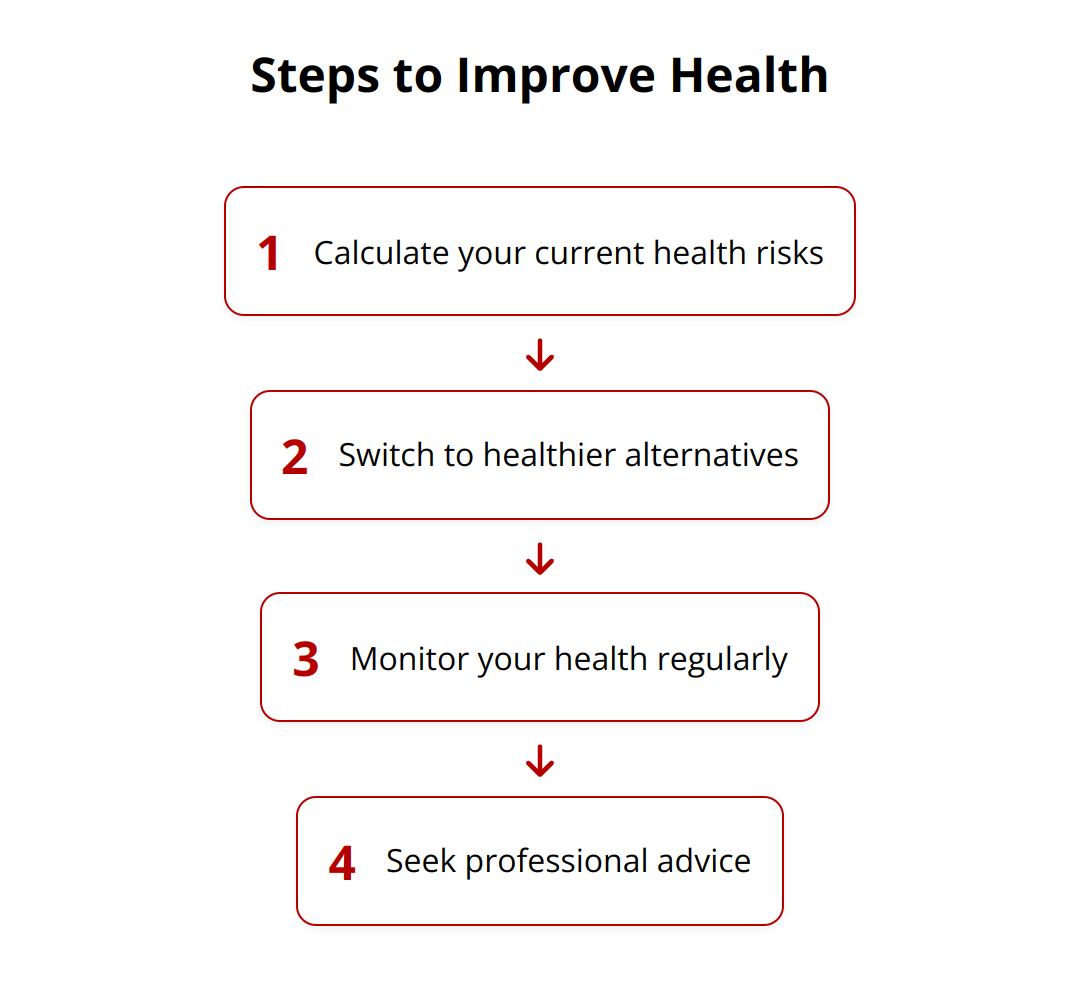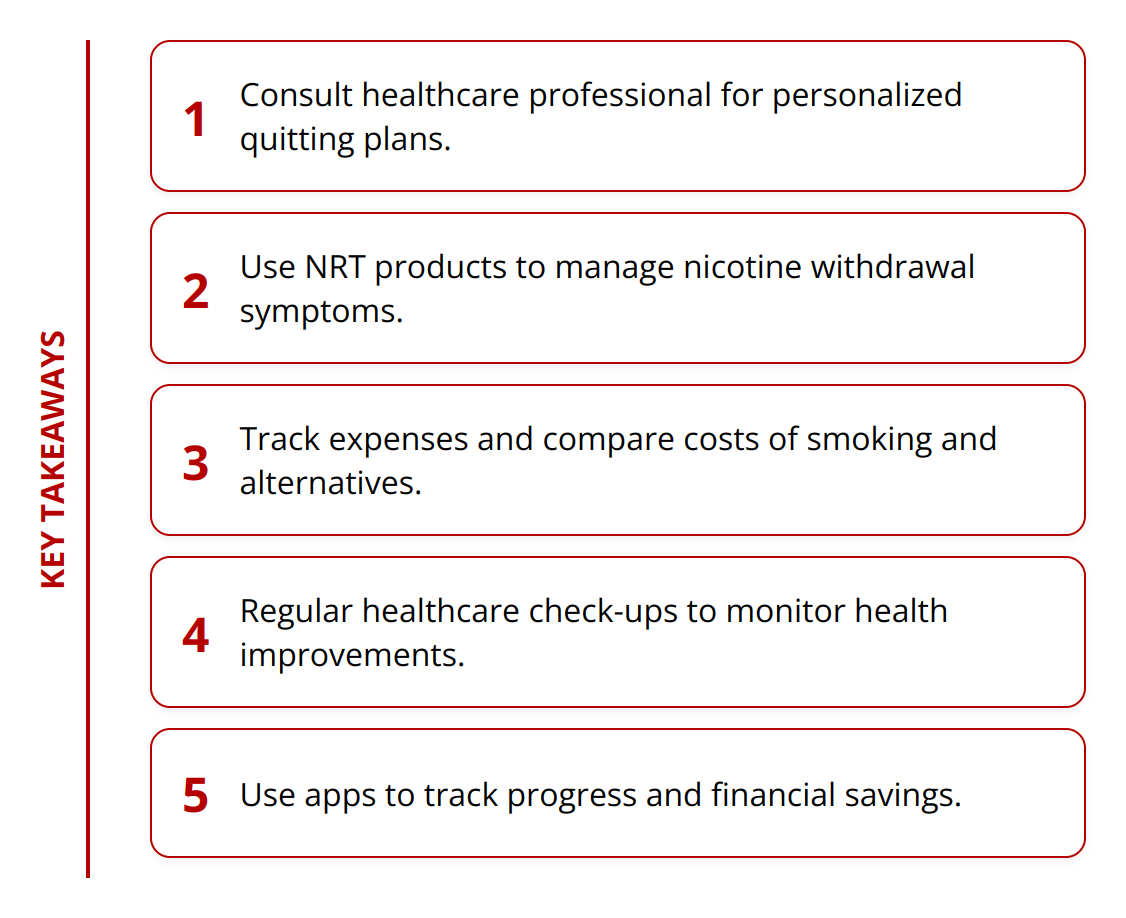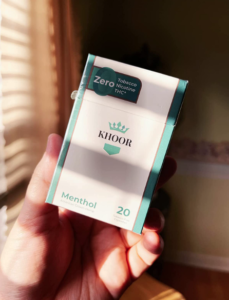
Herbal Smoking Wellness: All You Need to Know
Explore the benefits and tips of herbal smoking wellness with information on health impacts, botanical choices, and DIY blends.

Smoking has long-term impacts that many aren’t aware of until it’s too late. Traditional smoking poses significant risks, not just to smokers but also to those around them.
We at KHOOR believe in exploring healthier smoking alternatives. In this post, we discuss options that can reduce your exposure to harmful chemicals and possibly save you money.
Traditional smoking poses severe health risks that few fully understand. One significant concern is the long-term impact on health.

Diseases such as lung cancer, chronic obstructive pulmonary disease (COPD), and heart disease are directly linked to smoking. According to the CDC, over 480,000 deaths annually in the U.S. are attributed to smoking. These grim statistics highlight the undeniable need to consider healthier alternatives.

Another often-overlooked issue is second-hand smoke. People around smokers are at risk too. The American Lung Association reports that second-hand smoke causes approximately 41,000 deaths in non-smoking adults and 400 deaths in infants each year in the United States. It increases the risk of respiratory infections, ear infections, and sudden infant death syndrome (SIDS) in children, making it a clear danger to public health.
The financial costs associated with smoking-related diseases are staggering. A study by the American Cancer Society estimates that smoking-related illnesses in the U.S. cost more than $300 billion each year. This includes nearly $170 billion for direct medical care and more than $156 billion in lost productivity. Smokers and their families bear a significant portion of these costs, leading to financial strain in addition to health risks.
Practical Tips:
Healthier smoking alternatives have gained traction as people seek ways to reduce the health risks associated with traditional smoking. One such alternative is e-cigarettes and vaping. These devices heat a liquid to produce an aerosol that users inhale. While e-cigarettes contain fewer harmful substances than traditional cigarettes, they are not entirely safe. Studies show that e-cigarettes can contain nicotine, diacetyl (linked to lung disease), and heavy metals like nickel and lead. According to the American Lung Association, e-cigarette use by high school students rose by 78% between 2017 and 2018. Given these risks, e-cigarettes are often considered less harmful, but not harmless.

Another option is nicotine pouches and chewing gums. Nicotine pouches are small, white pouches containing nicotine, flavorings, and other ingredients. They do not produce any smoke or vapor, making them a smokeless alternative. Nicotine gums operate similarly by releasing nicotine when chewed. According to the Cochrane Library, nicotine replacement therapies (NRT) like gums and patches can increase the likelihood of quitting smoking by 50-60%. These alternatives can be effective for those wanting to reduce tobacco dependency gradually.
Heated tobacco products, such as the IQOS device, heat tobacco instead of burning it. This process reduces the release of harmful chemicals compared to traditional combustion. A study published in the Journal of Environmental Research and Public Health indicated that heated tobacco products expose users to lower levels of harmful constituents compared to conventional cigarettes. However, the long-term effects are still under study, and using these products is not risk-free.
Practical tips for those considering healthier smoking alternatives:

By evaluating these options, users can make informed decisions that better align with their health goals and reduce exposure to harmful chemicals. For further reading, you can explore more about coping with stress without nicotine and other health-friendly strategies.
Switching to healthier smoking alternatives offers concrete benefits that go beyond just reducing health risks. By making the switch, you can significantly reduce your exposure to harmful chemicals, lower your risk of developing smoking-related illnesses, and even save money in the long run.
One of the immediate gains is reduced exposure to harmful chemicals. Traditional cigarettes contain thousands of toxic substances, including over 70 known carcinogens. Healthier alternatives like nicotine pouches, gum, and some heated tobacco products expose you to far fewer harmful constituents. For instance, studies show that users of heated tobacco products intake lower levels of hazardous chemicals compared to those smoking conventional cigarettes.
Taking action to lower your risk of developing smoking-related illnesses can have immediate and cumulative health benefits. The CDC has found that within a year of quitting smoking, your risk of coronary heart disease drops by 50%. After 10 years, the risk of lung cancer falls to half that of a continuing smoker. These staggering figures illustrate how moving towards less harmful alternatives can lead to significant long-term health improvements. Users can explore tips to quit tobacco for more actionable advice.

Another important aspect is the potential financial savings. Smoking is not only harmful to your health but also to your wallet. A pack-a-day smoker can spend between $2,000 and $5,000 just on cigarettes annually. When you factor in healthcare costs and lost productivity due to smoking-related illnesses, the financial burden is even higher. Transitioning to alternatives like nicotine replacement therapies can be more cost-effective. For example, a month’s supply of nicotine patches typically costs less than a month’s worth of cigarettes.
Practical Tips:
Switching to healthier smoking options is not just an investment in your health but also a smart financial decision. By making informed choices, you can enjoy both health benefits and economic savings. For those looking to dive deeper, the benefits of quitting tobacco provide further insights.
The health risks associated with traditional smoking are significant, impacting not only smokers but also those around them through second-hand smoke. The alarming statistics on deaths and diseases linked to smoking highlight the need for healthier alternatives. By switching to options like heated tobacco products, nicotine pouches, and gums, the exposure to harmful chemicals can be reduced, providing potential health benefits and financial savings.

Exploring healthier smoking alternatives can lead to:
At KHOOR, we offer a premium, tobacco-free, and nicotine-free smoking experience through our all-natural herbal cigarettes. With flavors like Original, Menthol, Vanilla, and Berry Blue, you can enjoy a satisfying and smooth smoking experience without harmful effects. Consider trying our 4-pack flavor sampler or subscribing for discounts and free shipping. For more information, you can visit KHOOR.
Choosing healthier smoking options is an investment in your health and well-being, and KHOOR provides a health-conscious alternative that doesn’t compromise on flavor or experience.

Explore the benefits and tips of herbal smoking wellness with information on health impacts, botanical choices, and DIY blends.

Explore how KHOOR supports nicotine replacement with herbal cigarettes, success rates, and user stories for a healthier, smoke-free life.

Explore the benefits of quitting tobacco & nicotine with healthy alternatives. Improve your health and well-being with tips and data-backed advice.

Achieve your quit smoking goals with KHOOR’s supportive approach. Discover benefits, statistics, and practical tips for a healthier life.

Explore practical tips to smoke without nicotine, including product recommendations and real-life statistics to support your healthier lifestyle choices.

Explore tobacco-free alternatives with KHOOR. Learn about options like herbal cigarettes, nicotine pouches, and vaping for a healthier lifestyle.